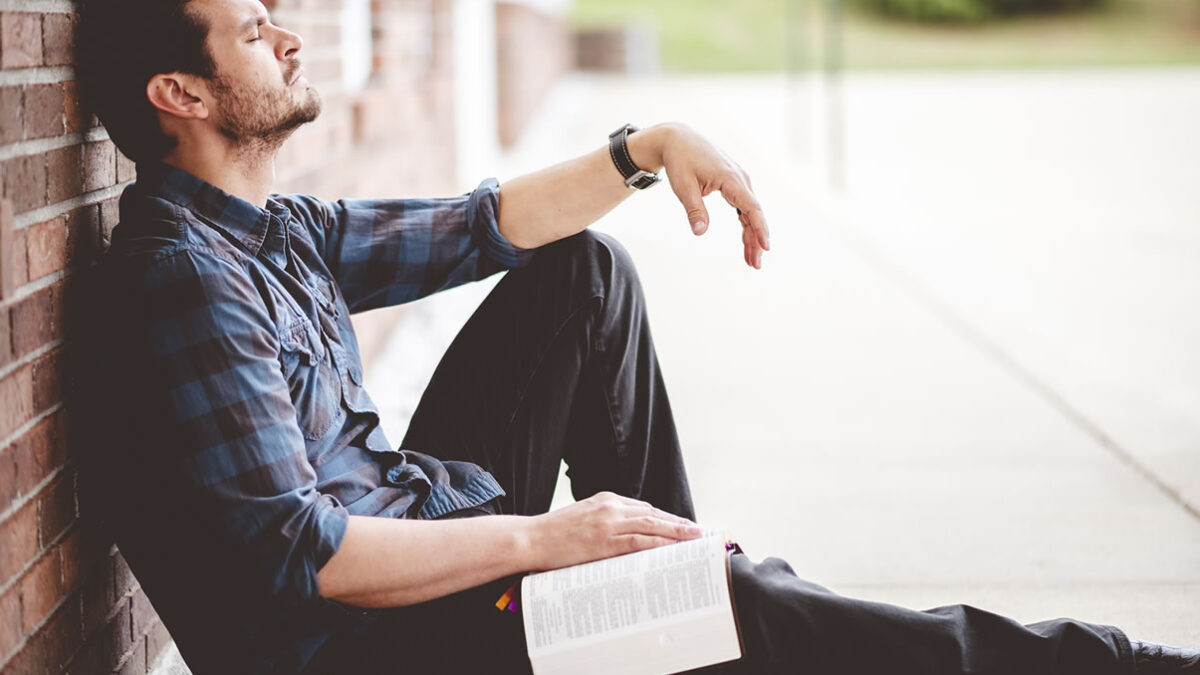We can see Jesus himself presenting this benefit to all of us:
“Come to me, all you who are weary and carrying heavy loads, and I will give you rest.” (Matthew 11:28)
Jesus is inviting us to lay our burdens down and experience the rest He gives. He proposes an exchange. We lay our heavy burdens down and carry His light burden. The “burden” He gives us is directly aligned with His purpose in our lives. This is wonderful! And although it seems to be something easy, it's not that simple. In the letter to the Hebrews, we find:
“Let us, therefore, make every effort to enter that rest, so that no one will perish by following their example of disobedience.” (Hebrews 4.11)
As incredible as it may seem, we need to “strive” to enter into “rest”. It even seems contradictory. The fact is that for us to receive the rest proposed by Jesus, it is necessary to surrender our burdens, and for that we need to trust Him.
In Psalms we also see an interesting passage that tells us to surrender our way, trust and He would act in us (Psalm 37:5). When you understand and, from the moment you manage to put into practice the lifestyle of rest, you begin to live in freedom.
God has formed us with a specific purpose and, from the moment we understand this purpose, our lives become easier. We can also find in the Bible that God already has everything ready before we’re even born, this doesn’t mean that everything is already determined, but that if we accept to live His purpose for us, that is, if we surrender our heavy burdens to Him and accept His “burden”, and strive to trust in Him, things will already be prepared for us.
In Psalm 23 we find a very well-known and profound passage:
“The Lord is my shepherd, I lack nothing. He makes me lie down in green pastures, he leads me beside quiet waters, he refreshes my soul. He guides me along the right paths for his name’s sake.” (Psalms 23:1-3)
This text brings an allegory of us, the people who accepted the lordship of God, in which we are compared to sheep having the Lord as our shepherd. Sheep have a peculiar characteristic: they can distinguish the voice of their shepherd and only obey him. If another one calls them, they won’t heed, but only follow the voice of their own shepherd.
In this Psalm, we see the author saying that because he has God as his Lord, he lacks nothing. Another interesting point, which I already mentioned in Chapter 8, and I want to reinforce here, is that in the original text the statement “I lack nothing” is not actually patching up the lack of things but says that He (the Lord) will not lack. This shows that, even if scarcity happens in our lives, He will not lack within us, bringing His provision for us. Just as the shepherd cares for his sheep by providing food and protection, our shepherd will be with us.
When we make the Lord our shepherd, He leads us to green pastures and makes us “lie down”; he leads us beside still waters and refreshes our souls. Look how wonderful that is!
Now, resting is not idleness. Living in rest does not exempt us from work. Apostle Paul gives us an example in his life, we see this in one of his letters:
“Therefore, we do not lose heart. Though outwardly we are wasting away, yet inwardly we are being renewed day by day.” (2 Corinthians 4:16)
Paul shows the Corinthian church that, although they were living in adversity and working hard, they shouldn’t allow life circumstances to wear down their emotions, on the contrary, they’d be renewed day by day.
This serves as a lesson for us because the permanent solution is not to withdraw from all activities, but to set aside time to rest our bodies, make the most of that time and enjoy the Lord's deeds in our lives. Having quality time with family, with friends, using that time as an “escape valve”, and striving to have a restful lifestyle, letting our Lord be the shepherd of our life; only this way will we be able to live the promise that the Lord has given us and spare our emotional life.
I want to encourage you to focus on this. It’s a powerful key that leads you to face life lightly and at the same time much more efficiently.
Extracted from the book “Stop, World! I Want to Get Off” written by Pr Fabio Eduardo

